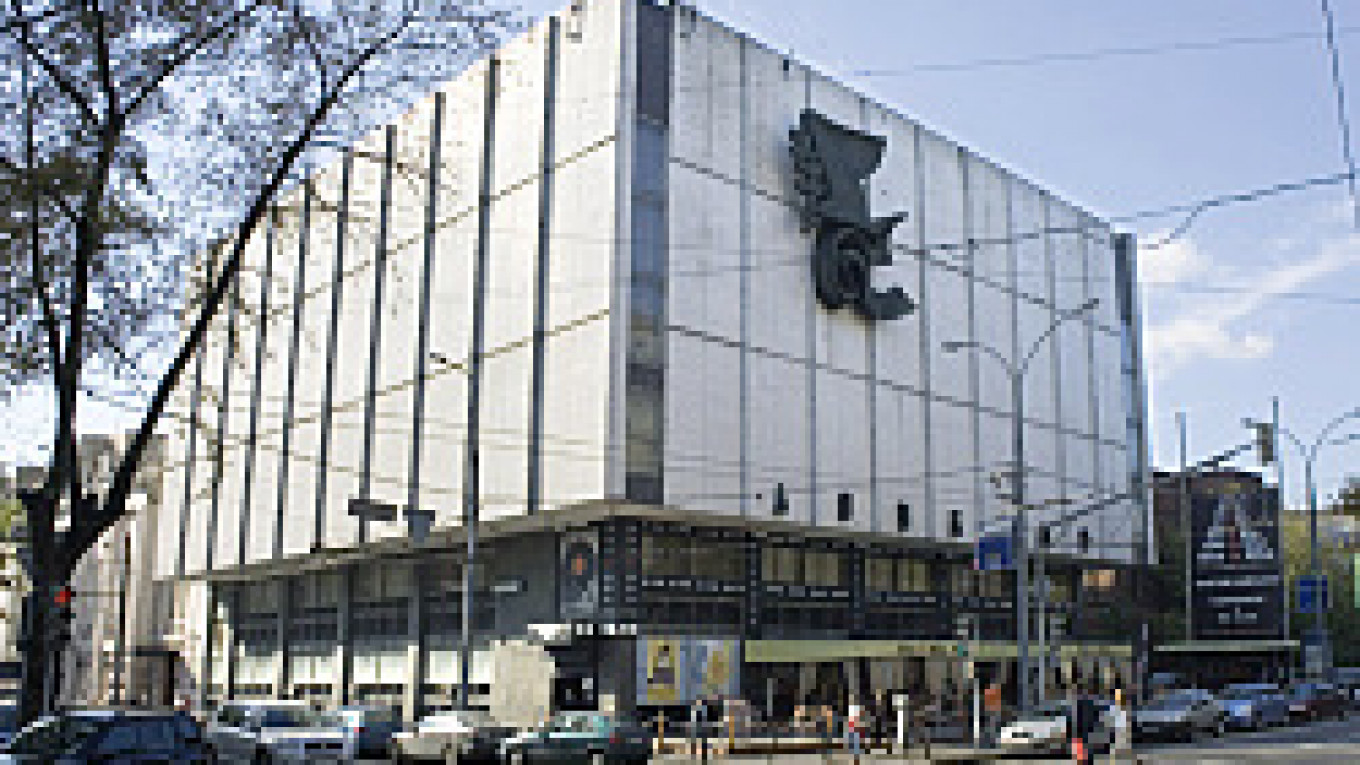Before Dom Kino, or Cinema House, housed the Russian Filmmakers' Union, it was headquarters for the union's Soviet predecessor.
Half of the building is a glass cube built in 1968; the other half dates to prerevolutionary times. The entire structure is falling apart.
The union's leadership has pushed plans to tear down Dom Kino, saying the building is in disrepair. But the leading lights of Russian cinema are livid, with some saying they'll picket to preserve the unique building where directors, actors and writers once convened for exclusive screenings and lavish dinners.
"The entire group of us spent half our existence there," said Eldar Ryazanov, the writer and director "Ironiya Sudby," or The Irony of Fate, which pivots around the utter sameness of Soviet apartment blocs. "I spent my life in Dom Kino. We buried our own in the building."
Plans to knock down the building date back a few years, but in recent weeks, talk about bringing in the wrecking ball has gained momentum. A special committee of 100 union members has been assigned to determine the building's fate.
"Maintenance work won't be enough. The building needs either a full renovation or to be destroyed," said Mikhail Kalinin, who is in charge of "organizational questions" at the union.
Kalinin said the building would either be renovated or destroyed. In the latter case, a 13-story complex will be built, with the union occupying one-third. The building's other future uses are unknown.
New offices are going up all around the building's home at 13 Ulitsa Vasilyevskaya, near the Belorusskaya metro station. Turn the corner onto 2nd Ulitsa Brestskaya, and the reconstruction of the Center of Modern Architecture churns on, with a $35 million price tag.
Members of the union are afraid their home will be given over to a private company ready to pay big bucks for the land. The union's Muzei Kino, or Cinema Museum, was sold to a private company and subsequently closed last year.
"This is an economically inspired action," said Alexander Mitta, director of "Shine, Shine, My Star!" "At its foundation is profit, and it's going to impair the work of the union."
In the 1970s and 1980s, as the Soviet Union stumbled from stagnation toward collapse, Dom Kino was "the most fashionable place," said Semyon Mikhailovsky, an architecture professor at the St. Petersburg Academy of Arts.
"From an architectural standpoint, it seemed so modern," Mikhailovsky said. In the mid- and late 1980s, Dom Kino offered Russians a taste of another life, he added. "It was an element of the renewed, civilized Russia of perestroika," he said. "The most chic people would go to the union's restaurant, a symbol of the new life."
The union's work, Kalinin said, includes organizing film premieres, lobbying and holding memorial services for deceased members. Some members hinted they would go to court over the building.
Mikhailovsky said if Dom Kino were razed, the property's ownership could change hands. He noted that all creative unions, which enjoyed the welfare of the Soviet state, were fighting for their now-privatized homes.
"They lead a ghost existence these days," he lamented.
A Message from The Moscow Times:
Dear readers,
We are facing unprecedented challenges. Russia's Prosecutor General's Office has designated The Moscow Times as an "undesirable" organization, criminalizing our work and putting our staff at risk of prosecution. This follows our earlier unjust labeling as a "foreign agent."
These actions are direct attempts to silence independent journalism in Russia. The authorities claim our work "discredits the decisions of the Russian leadership." We see things differently: we strive to provide accurate, unbiased reporting on Russia.
We, the journalists of The Moscow Times, refuse to be silenced. But to continue our work, we need your help.
Your support, no matter how small, makes a world of difference. If you can, please support us monthly starting from just $2. It's quick to set up, and every contribution makes a significant impact.
By supporting The Moscow Times, you're defending open, independent journalism in the face of repression. Thank you for standing with us.
Remind me later.


